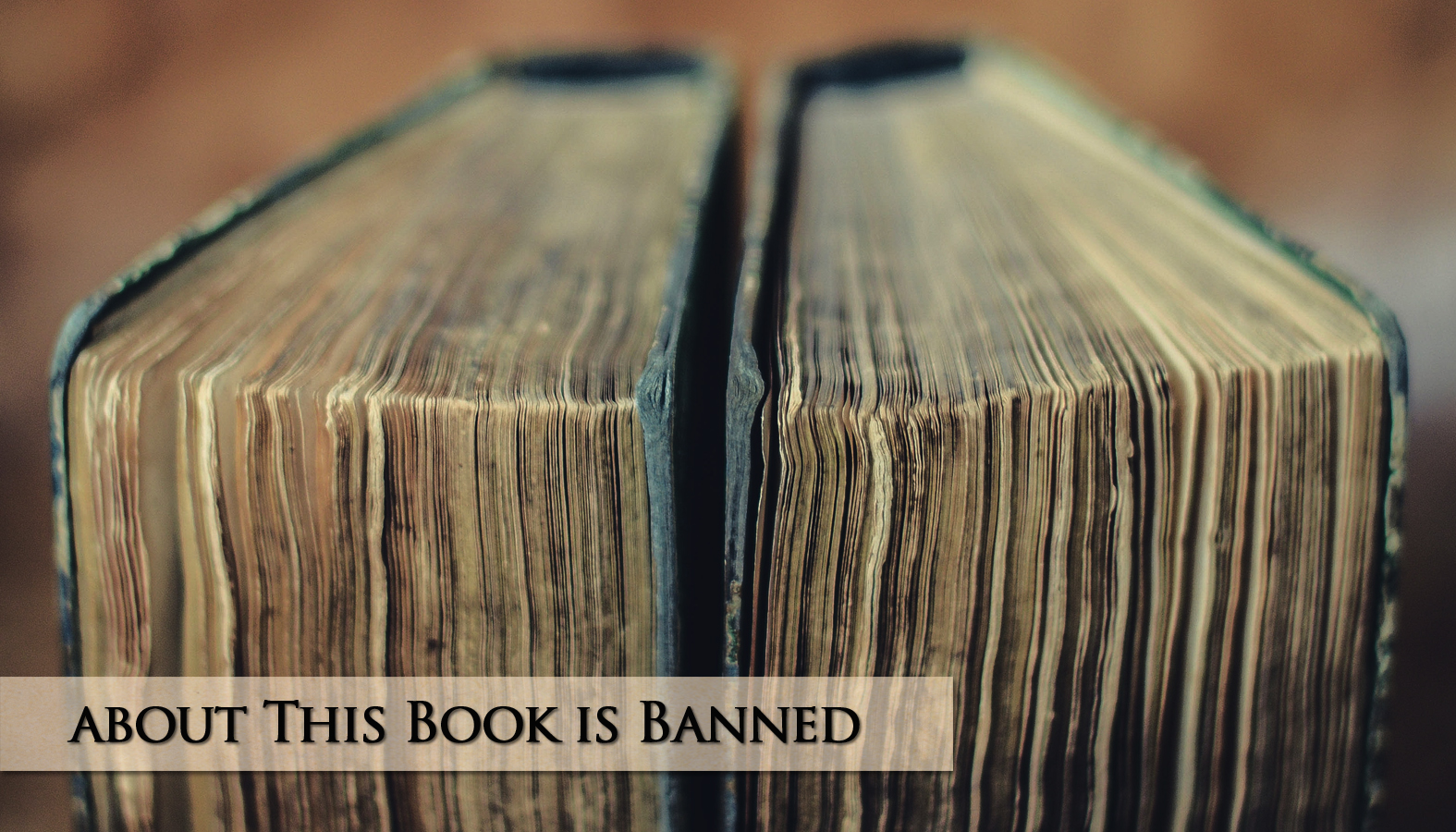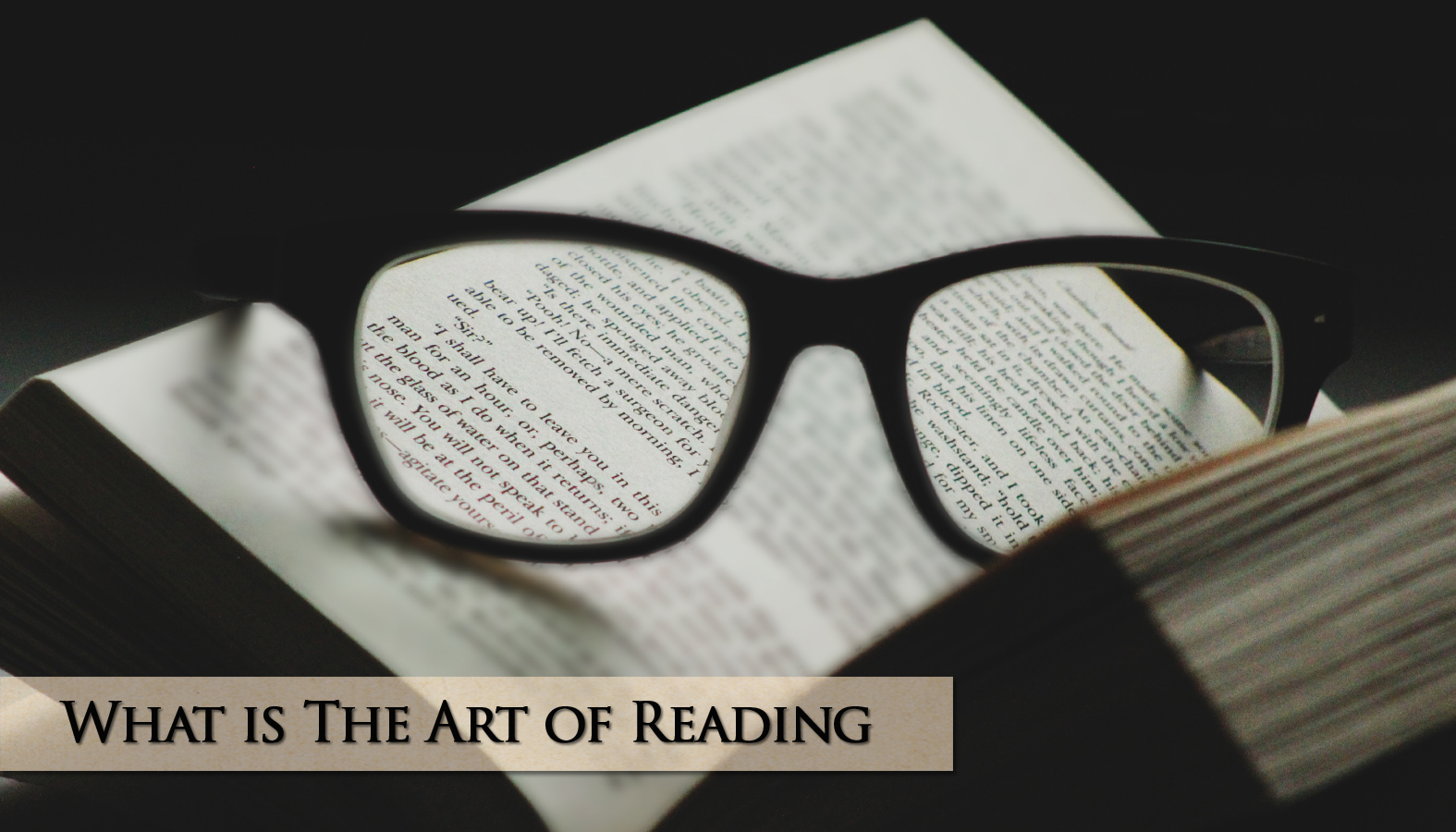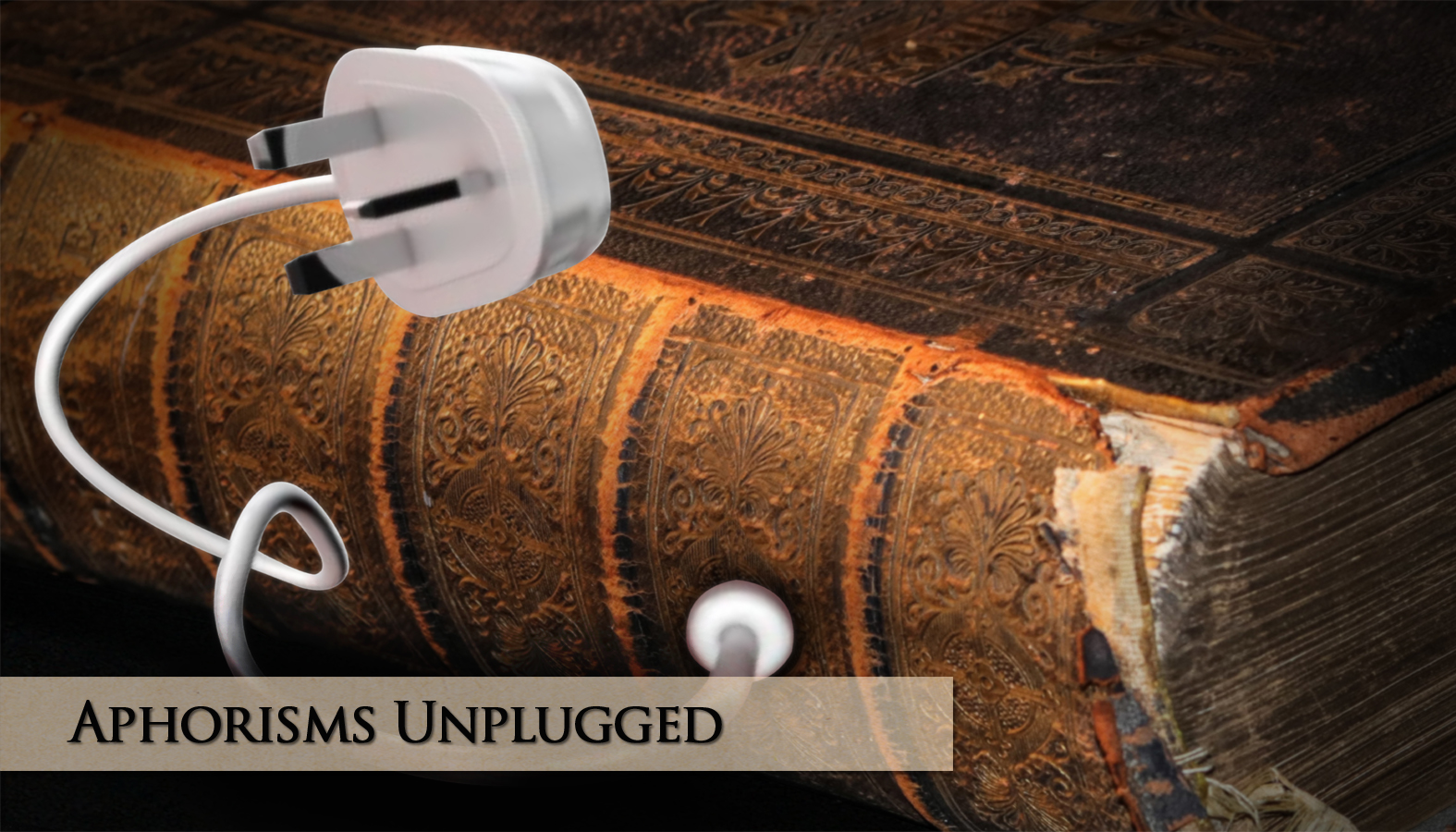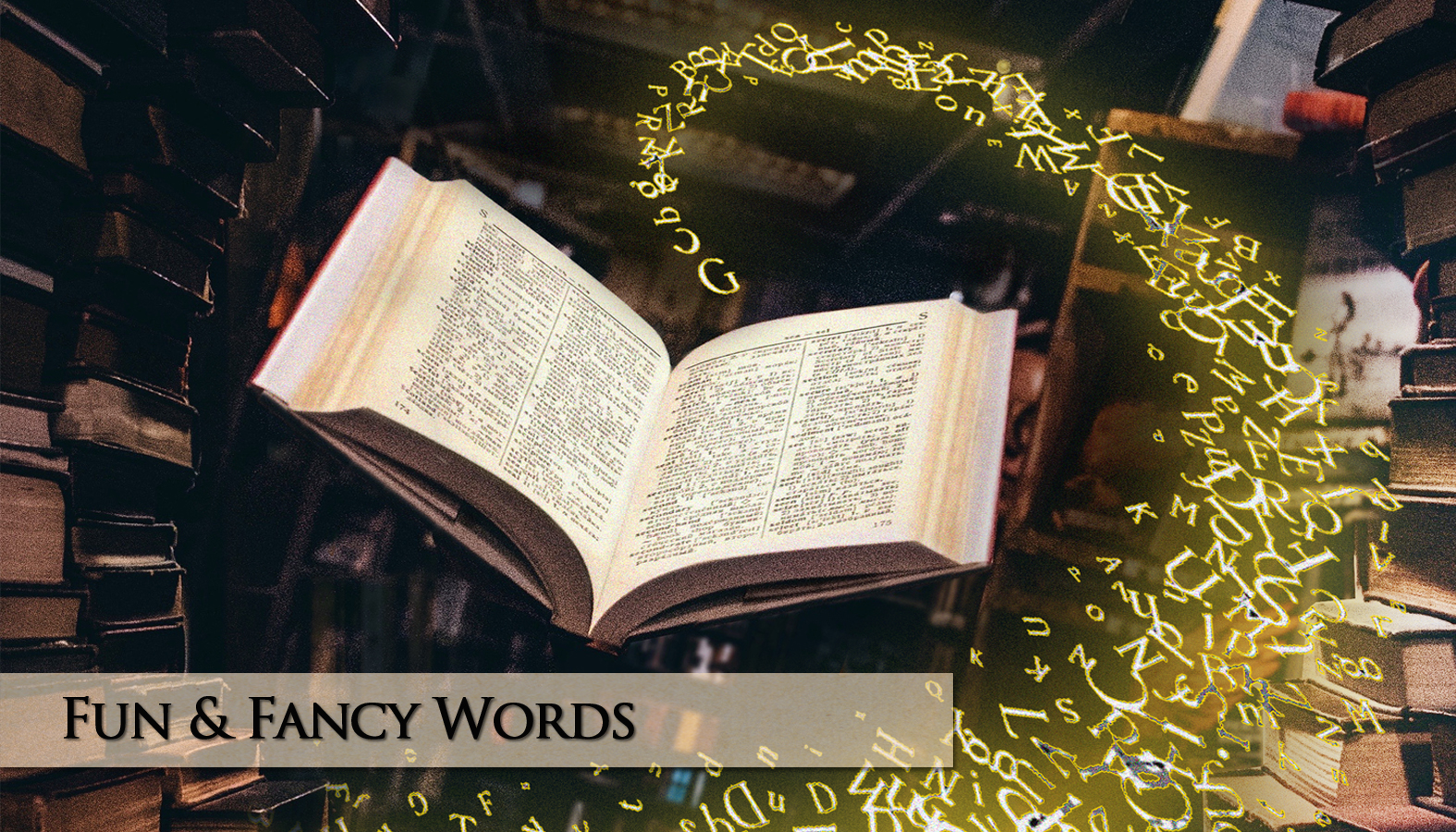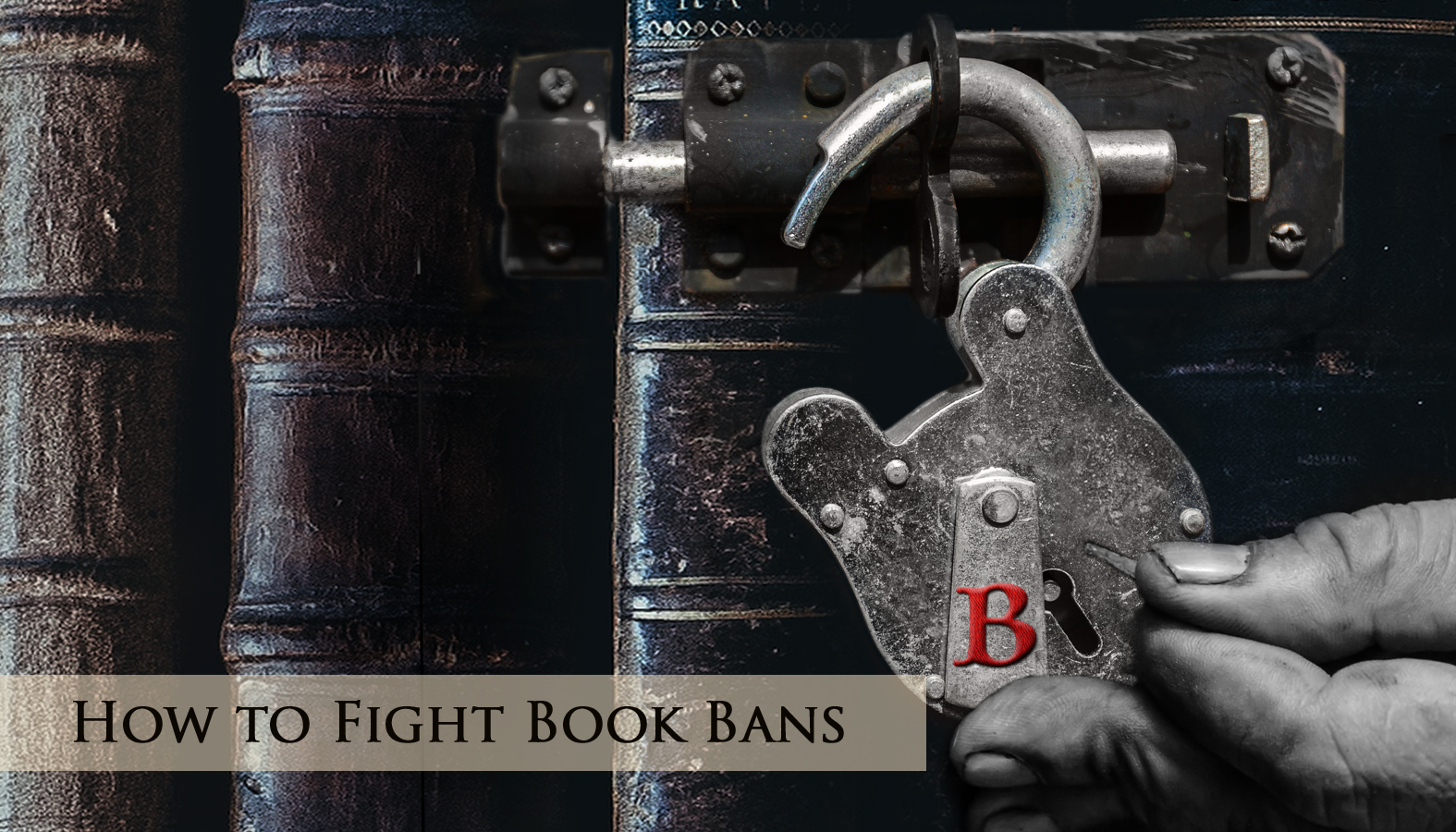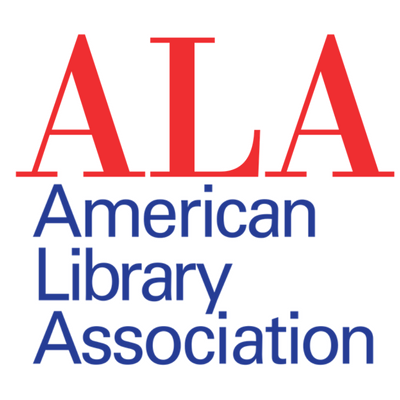FAHRENHEIT 451: Insights into today’s epidemic of book banning
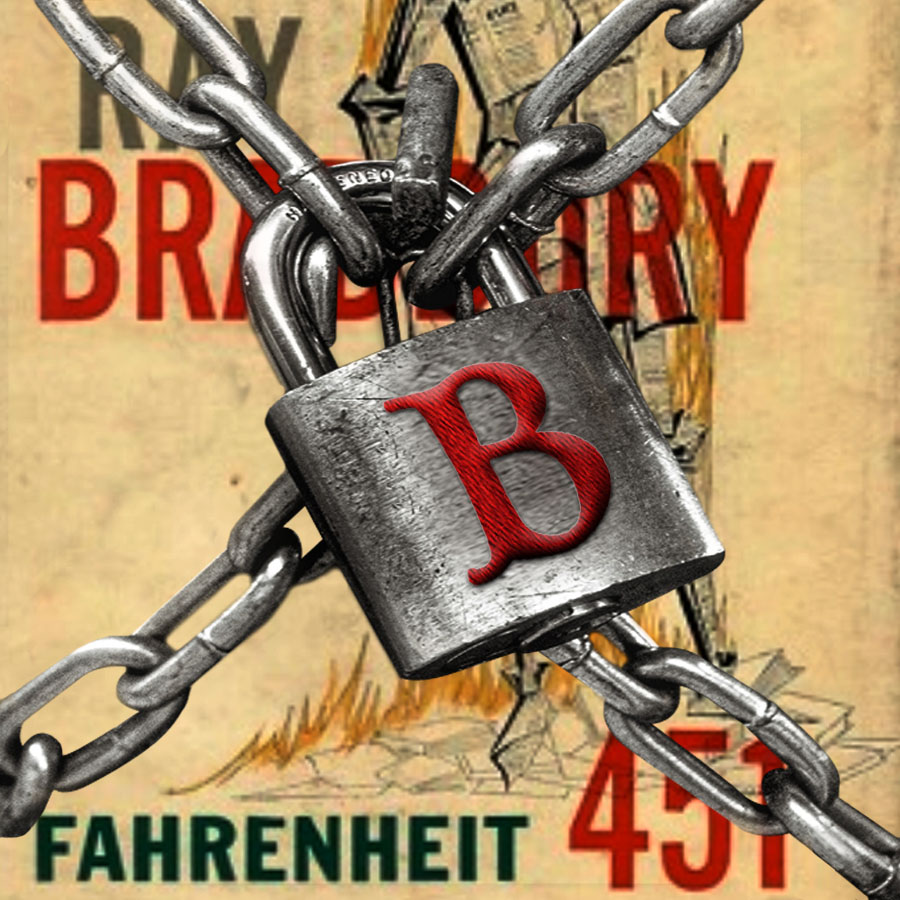
 R
R
ay Bradbury’s iconic dystopian work Fahrenheit 451 offers compelling insights into today’s epidemic of book banning. The progression of events within the text parallels how this scourge of book bans has unfolded. And, the predictive nature of Bradbury’s observations makes the correlations between them all the more captivating.
The work’s opening lines makes it immediately clear that we’re enmeshed in a nightmare scenario:
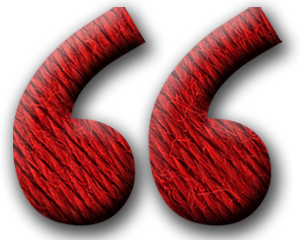
It was a pleasure to burn. It was a special pleasure to see things
eaten, to see things blackened and changed.[1]
This opening passage continues with Montag – Bradbury’s fireman protagonist – holding the brass nozzle of a firehose in his fists:

With his symbolic helmet numbered 451 on his stolid head, and his eyes all orange flame with the thought of what came next, he flicked the igniter and the house jumped up in a gorging fire that burned the evening sky red and yellow and black. He strode in a swarm of fireflies. He wanted above all, like the old joke, to shove a marshmallow on a stick in the furnace, while the flapping pigeon-winged books died on the porch and lawn of the house. While the books went up in sparkling whirls and blew away on a wind turned dark with burning.[2]
Given that firemen are civil service employees, combined with the fact that this work was originally published during the McCarthy era, it’s easy to see why Fahrenheit 451 is frequently considered a criticism of government censorship.
But, according to Bradbury himself, it isn’t. As Bradbury famously noted:

You don’t have to burn books to destroy a culture. Just get people to stop reading them.[3]
Bradbury was no fan of censorship, to be sure. The scathing coda added to Fahrenheit 451 in 1979 makes that perfectly clear. But, the work itself is a study of how the dystopian society Montag lives in arrived at the point where the government inserted itself, and firemen no longer extinguish fires but set books ablaze.

Montag’s Enlightenment
On his way home from the book burning described in the opening passage, Montag meets a young woman named Clarisse McClellan, who turns out to be his new neighbor. Not surprisingly, Clarisse embodies the essence of her name – brightness, radiance, and brilliance.[4] And, it’s this encounter that sets Montag’s enlightenment and subsequent transformation in motion.
Cutting right through Montag’s mundane small talk, Clarisse gets directly to the point:

Have you ever watched the jet cars racing on the boulevards down that way?”
I sometimes think drivers don’t know what grass is, or flowers, because they never see them slowly,” she said. “If you showed a driver a green blur, Oh yes! he’d say, that’s grass! A pink blur? That’s a rose-garden! White blurs are houses. Brown blurs are cows. My uncle drove slowly on a highway once. He drove forty miles an hour and they jailed him for two days. Isn’t that funny, and sad, too?”
You think too many things,” said Montag, uneasily.[5]
The point Clarisse makes revolves around people’s lack of attention to the world they live in, and the dearth of understanding such shallowness creates.

Clarisse’s remarks also apply to how we read
Clarisse’s observation parallels the way far too many of us read. The first thing we notice about a book is its plot. And who doesn’t enjoy reading about a couple guys on a cross-country rager (as in Kerouac’s On the Road), or a spooky old haunted mansion with an ancestral curse (a la Hawthorne’s The House of Seven Gables).
Hermann Hesse describes this type of reader as “naïve.”[6] They relate to books like a horse to its driver: the book leads, and the reader simply follows. The book’s substance is accepted without question.
There’s a world of difference, however, between knowing what a sentence says and what it means. Most people are naïve readers, who make their way through a book by simply processing the text on the page. They follow the dotted line from one plot point to the next and, by the end, walk away with a general grasp of what happened in the story – but nothing more. Their understanding of the book they just read is the equivalent of the “blur” experienced by the drivers of Bradbury’s jetcars.
Up until recently a significant number of book challenges stemmed, quite simply, from shallow reading. For example, early challenges to J. D. Salinger’s The Catcher in the Rye came from parents who essentially charged that Holden Caulfield sets a bad example for teen-age readers, that teenagers shouldn’t behave like Holden does.[7]
What is ironic to the point of frustration is that, when engaged at a level beyond simple plot, it’s obvious that Salinger is actually making these parents’ point for them – this isn’t acceptable teenage behavior, to be sure. But clearly, none of the challengers has engaged the work at a level that prompts them to ask why Holden acts the way he does… or at an even deeper level that would elicit the question, “what is Salinger actually writing about?”
When read merely for plot, The Catcher in the Rye appears to be nothing more than the story of a teenage boy having trouble transitioning to adulthood. However, the inappropriate behavior Holden Caulfield engages in and the way he expresses himself have a rhetorical purpose. When read accordingly, it becomes apparent that these behaviors are a response to the shifting societal landscape Salinger sees in postwar America.
Holden is grappling with the same kinds of questions the challengers’ own children are facing. Holden Caulfield is not, in fact, intended to be a role model. When the reader sees the proverbial blades of grass, individual roses in the garden, and actual cows rather than blurs of color, it is clear that Salinger’s work is about much more than the antics of a rebellious teenager.

What does Clarisse’s uncle have to do
with standardized testing in schools?
Clarisse’s anecdote about her uncle being jailed for driving slowly parallels the way standardized testing in schools obliges educators to focus on reading comprehension skills rather than knowledge-building, or critical thinking.[8]
It’s interesting to note that Montag’s response to Clarisse’s pairing of observations about experiencing the world at a cursory level with a story referring to consequences resulting from slowing down and fully engaging is, “You think too many things.”[9]
Clarisse also points out that Montag consistently gives pat, unconsidered responses to her questions – “you never stop to think what I’ve asked you.”[10]
It’s a thought-provoking exchange. Because, as educator Randi Weingarten points out:

Standardized testing is at cross purposes with many of the most important purposes of public education. It doesn’t measure big-picture learning, critical thinking, perseverance, problem solving, creativity or curiosity…[11]
Social studies curriculum professor, Lisa Gilbert’s comment continues this line of thinking:

What policymakers in many states also fail to understand, is how much standardized testing has shifted our students toward the need to feel certain about things — whereas our lives in this world are filled with ambiguity. [12]
And, literature reflects this ambiguity. But, teaching for standardized testing conditions readers to overlook the bulk of a work, which as with icebergs lies beneath the surface. So, important considerations about a book – like historical context, the author’s life experience, or how the meaning of words and phrases can change – get missed.
Such cursory engagement leaves students with empty husks of the books they’re reading. They may know what the book in question says, but are left not understanding what it means. How it addresses the ambiguity of life. What it actually has to say. Which in turn, perpetuates the type of book challenge mentioned above, one that is the product of shallow reading habits.

The Rise in Disregard for the Humanities.
Not too long after Montag’s encounter with Clarisse, it becomes apparent to the chief of his station that something is amiss with him. So, in an effort to get Montag back in line, Captain Beatty dresses him down with a lecture on the history of their profession.
At one point during Captain Beatty’s admonition, Montag inquires about Clarisse and her disappearance. And, Beatty’s response reflects the rapid rise in disregard for the Humanities.
His rejoinder to Montag’s inquiry is “you can’t rid yourselves of all the odd ducks in just a few years.” Beatty sees Clarisse as a dangerous “odd duck” because “she didn’t want to know how a thing was done, but why.” [13]
As Beatty states, he knows how to nip independent thought like Clarisse’s in the bud:

You can’t build a house without nails and wood. If you don’t want a house built, hide the nails and wood. [14]
And, the nails and wood Beatty is referring to are an education that fosters critical thinking. Beatty’s recipe for thwarting independent thought like Clarisse exhibited?

Cram them full of non-combustible data, chock them so damned full of ‘facts’ they feel stuffed, but absolutely `brilliant’ with information. Then they’ll feel they’re thinking, they’ll get a sense of motion without moving. And they’ll be happy, because facts of that sort don’t change. Don’t give them any slippery stuff like philosophy or sociology to tie things up with.
[15]
And we’ve seen this attitude reflected in the number of Arts programs that have been slashed, the number of Liberal Arts colleges that have shuttered, and the decline in Humanities degrees conferred generally.[16]
No Child Left Behind and the Common Core State Standards have pushed k-12 educators to prioritize science and math over other subjects.
[17]
According to the American Academy of Arts & Sciences, the Humanities’ share of bachelor’s degrees conferred is at its smallest number since a complete accounting of Humanities degrees first became possible, in 1987.
[18]
Though it seems paradoxical, even Albert Einstein championed a liberal arts education, advocating that it – rather than the acquisition of special knowledge – be at the forefront of education. Einstein sums up this contention by asserting that those whose education is limited to specialized knowledge “more closely resemble a well-trained dog” than a well-rounded individual.
[19]

Only happy books are allowed
As is apparent by his remarks about Clarisse, the core message of Captain Beatty’s harangue is clearly that people should amble through life, unthinking, untested, and mollified. The following passage constitutes the cornerstone of his menacing discourse:

Ask yourself, What do we want in this country, above all? People want to be happy, isn’t that right? Haven’t you heard it all your life? I want to be happy, people say. Well, aren’t they? Don’t we keep them moving, don’t we give them fun? That’s all we live for, isn’t it? For pleasure, for titillation? And you must admit our culture provides plenty of these.[20]
And, there are indeed books that have been banned because they aren’t upbeat enough. Here are a few examples:
- Alabama school board challenged The Diary of Anne Frank because, it was “a real downer.”[21]
. - The St. Helens, Oregon school board banned The House on Mango Street from middle-school curriculum, expressing “concerns for the social issues presented.”[22]
. - A group of community members and clergy in Mobile, Alabama called for local school officials to form a special textbook screening committee. And, Of Mice and Men was targeted for “morbid and depressing themes.”[23]
But, doesn’t Captain Beatty have a point? Don’t we all want to be happy? Don’t most parents want their children to be happy? What’s so wrong with only reading books that make us happy? What else is literature for, but to entertain us?
H. G. Wells’ 1912 essay The Contemporary Novel, addresses this very question. And Wells’ answer?

And this is where the value and opportunity of the modern novel come in. So far as I can see, it is the only medium through which we can discuss the great majority of the problems which are being raised in such bristling multitude by our contemporary social development.[24]
Toni Morrison also weighs in on the value of writers and the books they produce:

Certain kinds of trauma visited on peoples are so deep, so cruel, that unlike
money, unlike vengeance, even unlike justice, or rights, or the goodwill of others, only writers can translate such trauma and turn sorrow into meaning, sharpening the moral imagination.
A writer’s life and work are not a gift to mankind; they are its necessity.[25]
As Wells and Morrison make clear, the world isn’t always a happy place. And, books help us deal with that world.
But, what actually happens when adolescents read disturbing books? Well… literary scholars Gay Ivey and Peter Johnston have studied this, and here’s what they learned. The students they interviewed, most of whom said they previously read little or nothing, “started reading like crazy” both in and out of school. And, their reading achievement improved. They also reported improved self-control, as well as developing more, and stronger, friendships and family relationships. Students also reported being “happier. Yes, happier.”[26]

Sanitizing literary works
On the surface, sanitizing literary works appears to be a reasonable compromise strategy. It seems to allow us to talk about issues like those Wells and Morrison point out, while also addressing Captain Beatty’s observations about sensitivity to particular demographics:

Don’t step on the toes of the dog lovers, the cat lovers, doctors, lawyers, merchants, chiefs, Mormons, Baptists, Unitarians, second generation Chinese, Swedes, Italians, Germans, Texans, Brooklynites, Irishmen, people from Oregon or Mexico. The people in this book, this play, this TV serial are not meant to represent any actual painters, cartographers, mechanics anywhere. The bigger your market, Montag, the less you handle controversy, remember that![27]
But does sanitizing really serve as a viable trade-off? What happens when we cleanse texts? Harriet Beecher Stowe’s Uncle Tom’s Cabin is one victim of such sanitizing.
Folklorist Patricia A. Turner traces the unfortunate transformation of the Tom character from Christ figure to racial slur. Stowe wrote Tom as a figure who refuses to reveal where two enslaved women who had been sexually abused by their enslaver are hiding. Tom knows he’ll be beaten to death for not selling them out. Yet he remains defiant, refusing to say where they are. It’s the polar opposite of what that character has come to mean.
Stowe faced an incredible amount of criticism from the apologists for slavery. And according to Turner, in an effort to sell tickets, producers of the early stage shows catered to the sensitivity of these slavery apologists. They revised the image of slavery Stowe had depicted and characterized Uncle Tom in minstrel fashion – rendering him the weak, subservient figure that continues to be associated with his name.
But, deciding not to sanitize books isn’t just about saving the reputation of literary works. A 2011 episode of The Daily Show addresses the real problem with expurgating literature. Jon Stewart and Larry Wilmore are discussing a recent re-issue of Mark Twain’s The Adventures of Huckleberry Finn, one where every instance of the n-word was replaced with the word “slave.”
Playing devil’s advocate, Stewart suggested that the new edits make the book less “uncomfortable.” Wilmore’s response hits the mark:

Look, Mark Twain put that word in for a reason. The n-word speaks to a society that casually dehumanized black people. Slave was just a job description. And it’s not even accurate — in the book Jim is no longer a slave, he ran away. Twain’s point is that he can’t run away from being a n—-r.“[28]
And, Twain’s point (interpreted by Wilmore) remains relevant today. But, we never have a conversation about that if everyone feels OK with Jim’s situation – the attitude easily becomes “institutional slavery no longer exists, so everything’s fine.” Huck Finn is watered down to become a story about a boy’s adventures on the river, rather than the social commentary it was intended to be.
As social critic and educator bell hooks reminds us:

Oppression is insidious; if we pretend it does not exist, that we do not see it or know how to change it, then the oppression never has to go away… Denial permits us to be complicit.[29]

The slippery slope to anti-intellectualism
Captain Beatty points out another problem that develops when we sanitize literature, one consistent with Bradbury’s own experience with expurgated texts and compounded by the current disregard for a liberal arts education:

Magazines became a nice blend of vanilla tapioca. Books, so the damned snobbish critics said, were dishwater.[30]
Ironically, Fahrenheit 451 was itself sanitized for high school students’ consumption. More than 75 passages were modified, eliminating words like damn, and hell, as well as the mention of abortion.
Two incidents within the text were also removed. In the first, a drunk man was changed to being a sick man. The second instance refers to cleaning fluff out of the human navel, and was changed to cleaning ears.
A friend alerted Bradbury to the expurgation of his work, and not surprisingly, he promptly demanded that the publisher withdraw the sanitized version and replace it with his original.[31]
In Fahrenheit 451’s coda, Bradbury notes how one of his short stories had been edited for an anthology. He doesn’t pull any punches when addressing such editing/ cleansing of literary works:

Skin, debone, demarow, scarify, melt, render down and destroy. Every adjective that counted, every verb that moved, every metaphor that weighed more than a mosquito – out! Every simile that would have made a sub-moron’s mouth twitch – gone! Any aside that explained the two-bit philosophy of a first-rate writer – lost!
Every story, slenderized, starved, bluepenciled, leeched and bled white, resembled every other story. Twain read like Poe read like Shakespeare read like Dostoevsky read like – in the finale – Edgar Guest.[32] Every word of more than three syllables had been razored. Every image that demanded so much as one instant’s attention – shot dead.[33]
And what are the long-term repercussions of a diet of such pablum? The rise of anti-intellectualism. As Captain Beatty puts it, “the word intellectual, of course,” became a “swear word.”[234]
Beatty refers to the exceptional student who answered the most questions while so many others sat like “leaden idols hating him.”[35] And, it was this “bright boy” who was “selected for beatings and tortures after hours.”[36]
The captain’s diatribe lays out what happens when anti-intellectualism is on the rise:

Each man the image of every other; then all are happy, for there are no mountains to make them cower, to judge themselves against. So! A book is a loaded gun in the house next door. Burn it. Take the shot from the weapon. Breach man’s mind. Who knows who might be the target of the well-read man? Me? I won’t stomach them for a minute.[37]
This passage reflects the harassment, doxxing, and even violent threats suffered by teachers and librarians. Those whose jobs revolve around study and reflection have been vilified, characterized as pedophiles and accused of grooming children.
Here are just a few examples:
Associate professor of Library and Information Science Natalie Cooke’s email address and phone number were circulated among hate groups and their followers… and the harassment that followed was every bit as bad as you would imagine.[38]
Amanda Jones, who heads the board of the Louisiana Association for School Librarians, found a death threat in her email about a month after she spoke out against censorship at a public library. And she would get many more.
But, the one that rattled her most was from a man only four hours away from where she lived. And, “It was pretty explicit in the ways that he was going to kill me,” Jones said. “I was actually petrified.”[39]
And, Maegan Hanson, a library director in a small Idaho town, reports, “We had people threatening to burn down our building.”[40]
Like the “bright boy” in Beatty’s anecdote, individuals whose careers revolve around reading and intellectual activities have ended up with targets on their backs – and not necessarily the metaphoric variety.

Silencing stories about diversity
Captain Beatty also contends, conditions become such that “You always dread the unfamiliar.”[341 He further states, “We must all be alike. Not everyone born free and equal like the constitution says…”[42] So, stories reflecting diversity are silenced.
As author George M. Johnson notes:

The curriculum that is being taught in most school systems is still heavily geared towards the straight, white, male teen,” Johnson says. “And so when we now have the ability to put books into curriculum that tell other stories, that tell stories that are non-white, that tell stories that are non-heterosexual, they’re trying to take them out across the board because, you know, it’s like, ‘Oh, my God, how dangerous would it be if young white teens had to actually learn about the other people who exist in society with them?’[43]

Black literature
Black literature has long been the target of coordinated censorship efforts, spanning at least back to the Harlem Renaissance. But, as a result of the current mania revolving around Critical Race Theory – which is engendered by groups like No Left Turn in Education – the number of banned books featuring prominent characters that are Black has skyrocketed. Along with works written by Black authors. And those that tell stories from a Black perspective.[44] Here are just a few examples:
- Newbery Medal Winner New Kid by Jerry Craft is one such book.[45] New Kid is a graphic novel about relocating to a new school where diversity is low.
. - Then there’s Toni Morrison’s Beloved, which has faced widespread bans due to its depiction of slavery, not to mention the way it addresses other dark moments in American history.[46]
. - And, let’s not forget The 1619 Project: A New Origin Story, the book that ignited the anti-Critical Race Theory frenzy.[47] Jones’ work reframes American history by putting slavery and its legacy at the center of our national narrative.

LGBTQ+ literature
As with Black literature, opposition to LGBTQ books is not a new phenomenon in America. But the current wave is unprecedented in scope and scale.
According to American Library Association data, from the 2000s to the early 2010s, LGBTQ+ books were the target of between less than 1 – 3 percent of all challenges filed in schools. In 2022, however, that number had surged to 45.5 percent.
Founding chairman of Moms for Liberty, Jennifer Pippin, cites concern over sexually explicit material as the reason for challenges to LGBTQ+ books rather than homophobia. However, over one-third of the challenges to LGBTQ+ titles are simply because they feature LGBTQ+ lives or stories.[48]
A few examples of banned LGBTQ+ literature are:
- All Boys Aren’t Blue: A Memoir-Manifesto by George M. Johnson chronicles their childhood, adolescence, and college years as a queer Black youth. Johnson’s work explores subjects ranging from gender identity and toxic masculinity to structural marginalization and Black joy. It’s frequently challenged for LGBTQ+ content, and claims of sexual explicitness.[49]
. - Then there’s This Book is Gay by Juno Dawson. This Book Is Gay is a non-fiction book utilizing Dawson’s experience as a PSHE co-ordinator (Personal, Social and Health Education), Dawson offers basic information about the gay, lesbian, bisexual, and transgender experience. Frequently claimed to be pornography, it was also the subject of bomb threats sent to the Hilton Central School District in New York.[50]
. - There’s also Maia Kobabe’s book Gender Queer: A Memoir. Kobabe (who uses e/em/eir pronouns) charts eir journey of self-identity. But, this work is more than a personal story: it’s a useful and touching guide to gender identity for advocates, friends, and, basically, humans everywhere. It too is regularly challenged for LGBTQ+ content, and claimed to be sexually explicit.[51]
Unfortunately, there are maaaany more books on the list of works about diversity that have been silenced. And, once again, Toni Morrison alerts us to why it’s not only important for these stories to be told, but for us to keep fighting against bans of books like these. And, that’s because:

Unpersecuted, unjailed, unharassed writers are trouble for the ignorant bully, the sly racist...[52]

Societal energy is re-directed
Interestingly, it was a turn of events completely unrelated to books that kicked things into high gear. In Montag’s society it was:

when houses were finally fireproofed completely, all over the world… there was no longer need of firemen for the old purposes. They were given the new job, as custodians of our peace of mind, the focus of our understandable and rightful dread of being inferior: official censors, judges and executors.[53]
When it comes to our current epidemic of book banning, COVID-19 was the match that set things ablaze. Anger about mask mandates and school closures was quickly harnessed and re-directed toward books that banners claim clash with conservative values – which ultimately includes teachings about gender, race, social justice, and history.[54]
School board races had typically been friendly, and uneventful, with little money involved. But that was about to change, primarily due to the influence of conservative political organizations like the Family Heritage Alliance, the Free Republic Political Action Committee, Moms for Liberty (which has 300 chapters in 48 states), and the aforementioned No Left Turn in Education.[55]
There are at least 50 such groups in total advocating for bans in K-12 schools.[56] These political organizations are well-funded, and operate at the national, state, and local levels. What had traditionally been local contests became the targets of a handful of national conservative groups, who are pouring money into local school board races.[57]
Only 11 people are responsible for 60% of book challenges.
A Washington Post study reveals that 60 percent of all challenges were made by only 11 people. Previously, book challenges trickled in from individuals one book at a time.
But these days, serial filers lodging 10 or more complaints are responsible for two-thirds of all challenges – some of them challenging literally hundreds of books.[58] And a good number of these rely on a network of volunteers gathered with the backing of political organizations like those mentioned above.
Legislators are also compiling vast lists of books to challenge, like the one containing 850 books from Texas state representative Matt Krause. He then sent a letter to the Texas Education Agency and superintendents of school districts around the state requiring that schools tell him whether they possess any books on his list. Krause’s correspondence also demanded a detailed accounting of where those books are and how much money was spent on them.[59] And it doesn’t stop there.
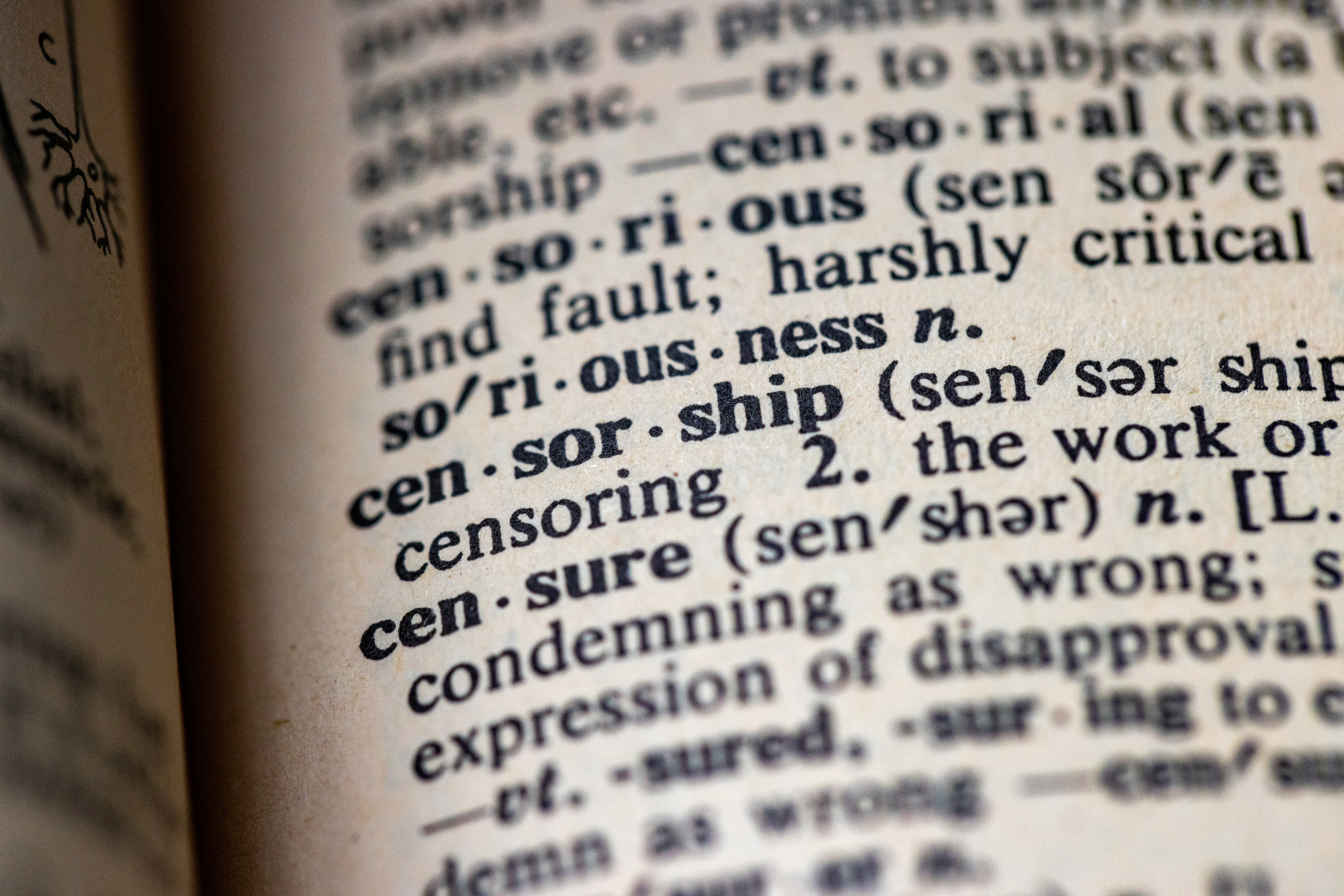
State-sponsored censorship
And, here’s the evidence. Proposals in the Missouri legislature, one of which states that librarians would be “punished by a fine” of up to five hundred dollars or “by imprisonment in the county jail” of up to one year for providing “age-inappropriate sexual material.”[60] But who decides what material is “age-inappropriate”? As any parent will tell you, children’s readiness for any given subject matter is as individual as the kids themselves.
Then there’s Florida’s “Don’t Say Gay” bill, which has several Florida schools removing books from their libraries.[61] There’s also the Sunshine State’s “Stop Woke Act”, which restricts the discussion of difficult historic truths that may make students feel “discomfort, guilt, or anguish” due to U.S. racial history – institutional slavery, for example, or how First Nations peoples were forced onto reservations, or that Japanese-Americans were put into internment camps during World War II.[62] Much to the dismay of their students, this law has teachers removing or covering all the books in their classroom libraries until they have been “vetted” by the proper authorities.[63]
And Project 2025 is looming, which would elevate such censorship and book banning to the federal level. In Project 2025’s forward, Kevin D. Roberts declares that the terms “sexual orientation and gender identity (SOGI), diversity, equity, and inclusion (DEI), gender, gender equality, gender equity, gender awareness, gender-sensitive, abortion, reproductive health, [and] reproductive rights” would be deleted from “every federal rule, agency regulation, contract, grant, regulation, and piece of legislation that exists.”[64]
Project 2025 further states that “the noxious tenets of ‘critical race theory’ and ‘gender ideology’ should be excised from curricula in every public school in the country. These theories poison our children.”[65] Earlier in the forward, such tenets are characterized as pornography. And, it declares that “the people who produce and distribute it should be imprisoned. Educators and public librarians who purvey it should be classed as registered sex offenders.”[66]
Unlike the society Montag lives in, we aren’t literally setting books aflame… yet. But, we are setting proverbial fire to the constitution.
And yet again, it’s Toni Morrison with a pearl of wisdom about the significance of book banning:

The historical suppression of writers is the earliest harbinger of the steady peeling away of additional rights and liberties that will follow.[67]
.
In Conclusion
Fortunately, there’s an alliance of activists pushing back against book banning. This community parallels the one in the last segment of Fahrenheit 451 who memorize books, and function as living libraries.
Groups like the American Library Association, the National Council of Teachers of English, and indeed the individuals behind websites like This Book is Banned are fighting to ensure our right to read.
Given what’s at stake – especially bearing Toni Morrison’s words in mind – join the coalition. Get Involved. Vote in elections of every level, and elect legislators who’ll submit bills like the Books Save Lives Act and the Fight Book Bans Act rather than the Stop WOKE Act.
Speak out in support of books that have been challenged at school board meetings. Better yet, run for your local school board.
Exercise your reading rights. Check out banned books from your public library – it really does help!
And finally, support your public library. Because, when it comes to books and the dangers that arise from banning them, libraries embody the biblical passage Montag cites at the close of Fahrenheit 451:

And on either side of the river was there a tree of life, which bare twelve manner of fruits, and yielded her fruit every month; And the leaves of the tree were for the healing of the nations.[68]
Books, of course, are the fruit of a library. And, as Bradbury is keen to point out, the future is going to need them.
.
That’s my take on Ray Bradbury’s Fahrenheit 451 – what’s yours?
Check out these Reader Resources from the
National Endowment for the Arts to get you started.

Share This Post, Choose a Platform!
Endnotes:
[1] Bradbury, Ray. Fahrenheit 451-The 5oth Anniversary Edition. New York: Ballantine Books, 2003. Pg 3.
[2] Bradbury, Ray. Fahrenheit 451-The 5oth Anniversary Edition. New York: Ballantine Books, 2003. Pg 3.
[3] Butler, Bethonie. “Ray Bradbury dies: Favorite quotes from the ‘Fahrenheit 451’ author.” The Washington Post, June 6, 2012. https://www.washingtonpost.com/blogs/arts-post/post/ray-bradbury-dies-favorite-quotes-from-the-fahrenheit-451-author/2012/06/06/gJQAGhIoIV_blog.html
[4] “Meaning of the first name Clarisse.” Ancestry.com
[5] Bradbury, Ray. Fahrenheit 451 – The 50th Anniversary Edition. New York: Ballantine Books, 2003. Pg 9.
[6] Hesse, Hermann. “On Reading Books.” in My Belief: Essays on Life and Art. Edited by Theodore Ziolkowski. Translated by Denver Lindley. (New York: Farrar, Straus and Giroux, 1974), 101.
[7] Mydans, Seth. “In a Small Town, a Battle Over a Book.” The New York Times, (Sept. 3, 1989).
[8] Wexler, Natalie. “New Study Suggests Standardized Testing Misses A Lot of Learning.” Forbes. February 23, 2023. https://www.forbes.com/sites/nataliewexler/2023/02/22/new-study-suggests-standardized-reading-tests-miss-a-lot-of-learning/
[9] Bradbury, Ray. Fahrenheit 451 – The 50th Anniversary Edition. New York: Ballantine Books, 2003. Pg 8.
[10] Bradbury, Ray. Fahrenheit 451 – The 50th Anniversary Edition. New York: Ballantine Books, 2003. Pg 8.
[11] Kober, Farra. “Randi Weingarten: Common Core should be a guide, not a straitjacket.” May 9, 2014. MSNBC. https://www.msnbc.com/all/you-asked-randi-weingarten-answered-common-core-standardized-testing-msna325831
[12] Watts, Judy H. “Bans that disrupt democracy.” Washington Magazine. February 19, 2024. https://source.wustl.edu/2024/02/bans-that-disrupt-democracy/
[13] Bradbury, Ray. Fahrenheit 451 – The 50th Anniversary Edition. New York: Ballantine Books, 2003. Pg 60.
[14] Bradbury, Ray. Fahrenheit 451 – The 50th Anniversary Edition. New York: Ballantine Books, 2003. Pg 60.
[15] Bradbury, Ray. Fahrenheit 451 – The 50th Anniversary Edition. New York: Ballantine Books, 2003. Pg 61.
[16] Snyder, Christopher A. “A Liberal Education in Name Only.” Inside Higher Ed. October 23, 2023.
https://www.insidehighered.com/opinion/views/2023/10/23/liberal-education-name-only-opinion
[17] Gregory, Danny. “Let’s Get Rid of Art Education in Schools.” Kappan. April 1, 2017.
[18] “Bachelor’s Degrees in the Humanities.” American Academy of Arts & Sciences.
[19] Fine, Benjamin. “Einstein Stresses Critical Thinking.” The New York Times. October 5, 1952.
[20] Bradbury, Ray. Fahrenheit 451 – The 50th Anniversary Edition. New York: Ballantine Books, 2003. Pg 59.
[21] Driscoll, Molly. “30 banned books that may surprise you.” The Christian Science Monitor. October 3, 2012. https://www.csmonitor.com/Books/2012/1003/30-banned-books-that-may-surprise-you/The-Diary-of-A-Young-Girl-by-Anne-Frank
[22] Van Winkle, Katie. “Saving Mango Street.” Rethinking Schools. https://rethinkingschools.org/articles/saving-mango-street/
[23] “Of Mice and Men by John Steinbeck.” Banned Library.
https://www.bannedlibrary.com/podcast/2015/12/26/banned-46-of-mice-and-men
[24] Wells, Herbert George. “The Contemporary Novel.” The Atlantic Monthly. January, 1912. Pg 8
[25] Morrison, Toni. “Peril” Burn This Book: notes on literature and engagement. New York: Harper, 2009. Pg 3.
[26] Gay Ivey and Peter Johnston. “What Happens When Young People Actually read ‘Disturbing’ Books.” Teachers College Press blog. October 31, 2023.
[27] Bradbury, Ray. Fahrenheit 451 – The 50th Anniversary Edition. New York: Ballantine Books, 2003. Pg 57.
[28] Perlmutter, Sammy. “Jon Stewart Takes on ‘Huckleberry Finn’ N-Word Controversy.” HuffPost. Jamuary 12. 2011.
https://www.huffpost.com/entry/jon-stewart-takes-on-huck_n_807921
[29] Kirk-Duggan, Cheryl A. “Quilting Relations with Creation: Overcoming, Going Through, and Not Being Stuck.” Deeper Shades of Purple: Womanism in Religion and Society, New York: New York University Press, 2006. Pg 180.
[30] Bradbury, Ray. Fahrenheit 451 – The 50th Anniversary Edition. New York: Ballantine Books, 2003. Pg 57.
[31] Sova, Dawn B. “Censorship History of Fahrenheit 451.” Banned Books: Literature Suppressed on Social Grounds, Revised Edition. New York: Facts On File, Inc., 2006. Pg 134.
[32] Edgar Guest has been called “the poet of the people,” whose poems presented a deeply sentimental view of daily life. “Edgar Guest.” The Academy of American Poets. Poets.org https://poets.org/poet/edgar-guest
[33] Bradbury, Ray. Fahrenheit 451 – The 50th Anniversary Edition. New York: Ballantine Books, 2003. Pg 176.
[34] Bradbury, Ray. Fahrenheit 451 – The 50th Anniversary Edition. New York: Ballantine Books, 2003. Pg 58.
[35] Bradbury, Ray. Fahrenheit 451 – The 50th Anniversary Edition. New York: Ballantine Books, 2003. Pg 58.
[36] Bradbury, Ray. Fahrenheit 451 – The 50th Anniversary Edition. New York: Ballantine Books, 2003. Pg 58.
[37] Bradbury, Ray. Fahrenheit 451 – The 50th Anniversary Edition. New York: Ballantine Books, 2003. Pg 58.
[38] Morehart, Phil. “Defeating Bullies and Trolls.” American Libraries. March 15, 2019. https://americanlibrariesmagazine.org/blogs/the-scoop/librarians-defeating-bullies-trolls/
[39] Pendharkar, Eesha. “A School Librarian Pushes Back on Censorship and Gets Death Threats and Online Harassment.” EducationWeek.September 22, 2022.
https://www.edweek.org/policy-politics/a-school-librarian-pushes-back-on-censorship-and-gets-death-threats-and-online-harassment/2022/09
[40] Alfonseca, Kiara. “Librarians say tthey face threats, lawsuits, jail fears over ongoing book battles.” April 13, 2024. Abcnews.go.com
https://abcnews.go.com/US/librarians-face-threats-lawsuits-jail-fears-ongoing-book/story?id=109081570
[41] Bradbury, Ray. Fahrenheit 451 – The 50th Anniversary Edition. New York: Ballantine Books, 2003. Pg 58.
[42] Bradbury, Ray. Fahrenheit 451 – The 50th Anniversary Edition. New York: Ballantine Books, 2003. Pg 58.
[43] Reena Advani, Rachel Treisman. “Banned Books: George M. Johnson on the need to tell all people’s stories.” NPR.org
https://www.npr.org/2022/10/25/1130433140/banned-books-all-boys-arent-blue-george-johnson-lgbtq-ya
[44] “Book Bannings Targeting Black Authors and Perspectives Are Skyrocketing.” Everylibrary.org February 07, 2023.
https://action.everylibrary.org/book_bannings_targeting_black_authors_and_perspectives_are_skyrocketing
Tyler Kingkade, Brandy Zadrozny and Ben Collins. “Critical race theory battles invade school boards – with help from conservative groups.” NBCnews. June 15, 2021. https://www.nbcnews.com/news/us-news/critical-race-theory-invades-school-boards-help-conservative-groups-n1270794
[45] Bellamy-Walker, Tat. “Book bans in schools are catching fire. Black authors say uproar isn’t about students.” NBCnews. January 6, 2022.
https://www.nbcnews.com/news/nbcblk/book-bans-schools-are-catching-fire-black-authors-say-uproar-isnt-stud-rcna10228
[46] Getachew, Denora. “Best Banned Books by Black Authers, from Toni Morrison to Angie Thomas.” Teen Vogue. February, 2023. https://www.teenvogue.com/story/best-banned-books-black-authors
[47] Cathryn Stout, Sam Park, Dan Lyon, and Monica Rhor. “How Nikole Hannah-Jones’ 1619 Project ignited the critical race theory backlash.” Chalkbeat Tennessee. July 19, 2021.
[48] Naatanson, Hannah. “Objection to sexual, LGBTQ content propels spike in book challenges.” The Washington Post. June 9, 2023. https://www.washingtonpost.com/education/2023/05/23/lgbtq-book-ban-challengers/
[49] “Top 10 Most Challenged Books of 2023.” American Library Association. https://www.ala.org/bbooks/frequentlychallengedbooks/top10
[50] Pendharkar, Eesha. “Book Ban Debates Prompt Bomb Threats Against Schools.” Education Week. April 27, 2023. https://www.edweek.org/leadership/book-ban-debates-prompt-bomb-threats-against-schools/2023/04
[51] “Top 10 Most Challenged Books of 2023.” American Library Association. https://www.ala.org/bbooks/frequentlychallengedbooks/top10
[52] Morrison, Toni. “Peril” Burn This Book: notes on literature and engagement. New York: Harper, 2009. Pg 2.
[53] Bradbury, Ray. Fahrenheit 451 – The 50th Anniversary Edition. New York: Ballantine Books, 2003. Pg 59.
[54] Gruver, Mead. “From masks to book banning, conservatives take on educators.”
Associated Press. December 19, 2021.
https://apnews.com/article/conservatives-educators-coronavirus-masks-book-banning-cfe02e318d95070d468c88e7294d8aa9
[55] Denise-Marie Ordway. “School board elections in the US: What research shows.” The Journalist’s Resource. May 28, 2024. https://journalistsresource.org/education/school-board-elections-research/
[56] Chavez, Nicole. “At least 50 groups in the US advocated to ban books in the past year.” CNN.com September 19, 2022. https://www.cnn.com/2022/09/19/us/book-ban-movement-pen-america-report-reaj/index.html
[57] Atterbury, Andrew. “National conservative groups pour money into local school board races.” Politico. September 19, 2022. https://www.politico.com/news/2022/09/19/conservative-school-board-fundraising-florida-00057325
[58] Naatanson, Hannah. “Objection to sexual, LGBTQ content propels spike in book challenges.” The Washington Post. June 9, 2023. https://www.washingtonpost.com/education/2023/05/23/lgbtq-book-ban-challengers/
Lapin, Andrew. “Meet Bruce Friedman, the Jewish dad who got a version of Anne Frank’s diary and hundreds of other books banned from his Florida school district.” Jewish Telegraphic Agency. October 6, 2023. https://www.jta.org/2023/10/06/united-states/this-jewish-dad-got-a-version-of-anne-franks-diary-removed-from-his-florida-school-district
[59] Chappell, Bill. “A Texas lawmaker is targeting 850 books that he says could make students feel uneasy.” NPR.org October 28, 2021. https://www.npr.org/2021/10/28/1050013664/texas-lawmaker-matt-krause-launches-inquiry-into-850-books
[60] Missouri House Bill No. 2044. https://house.mo.gov/billtracking/bills201/hlrbillspdf/4634H.01I.pdf
[61] Legum, Judd. “’Don’t Say Gay’: Florida schools purge library books with LGBTQ characters.” Popular Information. January 5, 2023. https://popular.info/p/dont-say-gay-florida-schools-purge
[62] Florida Bill 2022148. https://www.flsenate.gov/Session/Bill/2022/148/BillText/Filed/HTML
[63] Negussie, Tesfaye and Rahma Ahmed. “Florida schools directed to cover or remove classroom books that are not vetted.” abcNEWS. https://abcnews.go.com/Politics/florida-schools-directed-cover-remove-classroom-books-vetted/story?id=96884323
[64] Project 2025. Washington, D.C.: The Heritage Foundation, 2024.Pg 4-5.
[65] Project 2025,.Washington, D.C.: The Heritage Foundation, 2024. Pg 5.
[66] Project 2025. Washington, D.C.: The Heritage Foundation, 2024 Pg 5.
[67] Morrison, Toni. “Peril” Burn This Book: notes on literature and engagement. New York: Harper, 2009. Pg 3.
[68] Bradbury, Ray. Fahrenheit 451 – The 50th Anniversary Edition. New York: Ballantine Books, 2003. Pg 165.
Images:
Montag’s Enlightenment: Photo by Nghia Le on Unsplash
Clarisse’s remarks also apply to how we read: Photo by Thong Vo on Unsplash
Clarisse’s uncle and standardized testing: Photo by Ben Mullins on Unsplash
Disregard for the Humanities: Photo by Markus Spiskeon Unsplash
Only happy books are allowed: Photo by Josh Felise on Unsplash
Sanitizing literary works: Photo by Mediamodifier on Unsplash
The slippery slope to anti-intellectualism: Photo by Anne Nygård on Unsplash
Silencing stories about diversity: Photo by Jackson Simmer on Unsplash
Black literature: Maya Angelou reciting her poem “On the Pulse of Morning” at President Bill Clinton’s inauguration in 1993. William J Clinton Presidential Library. Public Domain
LGBTQ+ literature: Photo by Isi Parente on Unsplash
Societal energy is re-directed: Photo by Rey Seven on Unsplash
State-sponsored censorship: Photo by Mick Haupt on Unsplash
In Conclusion: Photo by Johann Siemens on Unsplash





